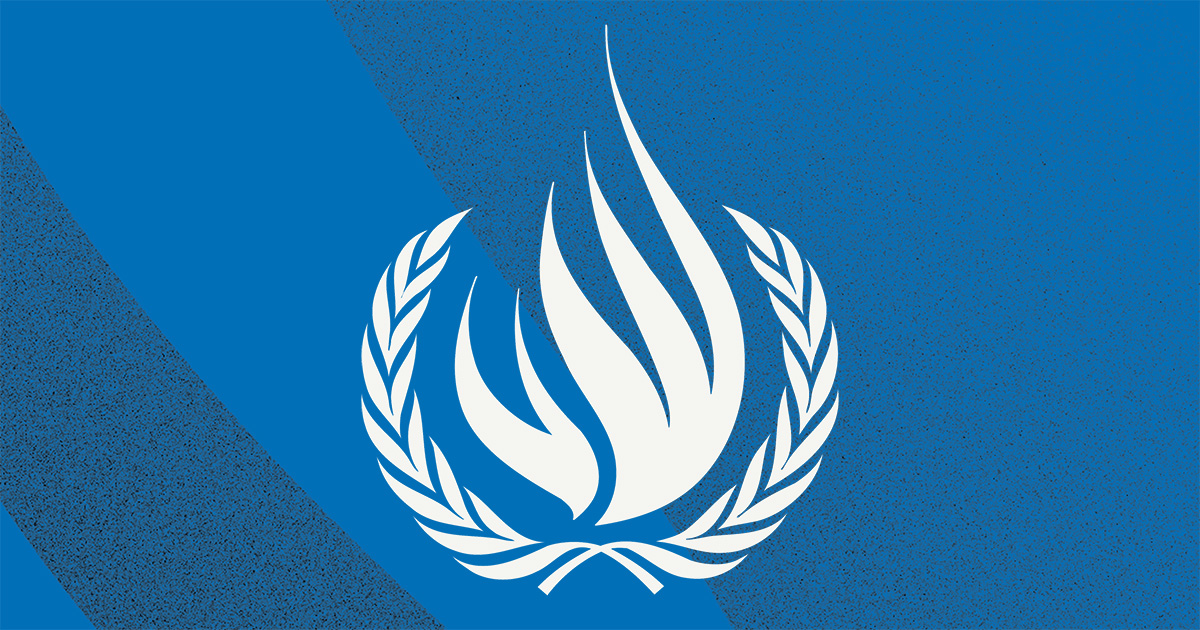
GENEVA – The UN Special Rapporteur on torture and other cruel, inhuman or degrading treatment or punishment, Alice Jill Edwards, today urged Russian authorities to provide immediate and comprehensive medical care to several Ukrainian civilian detainees, originally from Crimea, who are currently being held in Russia.
“Ukrainians detained in Russia are in a precarious situation,” the expert said. “I remind authorities that anyone in detention must always be treated in a humane and dignified manner, which includes access to adequate medical assistance.”
She stressed that denial of medical care could amount to a form of torture or other cruel, inhuman or degrading treatment or punishment.
“In all eight of the cases I examined, detainees have serious medical conditions, some of which are reported to be life-threatening,” the Special Rapporteur said. “Urgent action is needed to protect their lives.”
The expert noted that at least two people required medical attention after being beaten by prison staff. In one case, the violence was allegedly so severe that the victim’s spine was fractured. Three individuals with disabilities are allegedly not being provided appropriate health services considering their impairments.
“Hundreds of Ukrainian civilians have been deprived of their liberty in Crimea since the start of the Russian occupation 10 years ago and during the subsequent illegal annexation,” Edwards said. “Many are allegedly being held on political grounds and some have been abusively charged with terrorism-related offences. Many have been illegally transferred out of the territory and detained within the Russian Federation, far away from family and lawyers.”
The Special Rapporteur noted a consistent lack of medical care and poor detention conditions. “There is often violence in detention. As a result, some have developed serious, even life-threatening, illnesses,” she said.
The cases examined by the expert include those of Emir-Useyin Kuku and Irina Danilovich.
Emir-Useyin Kuku, a human rights defender, was reportedly beaten by members of the Federal Security Service of the Russian Federation (FSB) resulting in a spinal injury in 2015. His injuries were not treated at the time. In the last five years Kuku has suffered different medical conditions, including swollen legs, which were left untreated, and severe kidney pain for which he underwent emergency surgery, however he has never been informed of the type or outcomes of that operation. He remains in prison in Russia.
Irina Danilovich, a human rights defender and citizen journalist, was reportedly abducted from a bus stop in Crimea in April 2022. She suffered from excruciating ear pain but did not receive adequate medical treatment while in detention. Danilovich has lost hearing in her left ear, suffers from constant headaches, physical coordination issues and may have suffered a stroke. She remains in prison in Russia.
“I examined in detail eight cases out of the hundreds of Crimean Ukrainians detained by Russia,” Edwards said. “The medical conditions they suffer are serious, including some caused by torture, and others aggravated by the conditions in which they are being held.”
“This comes more than a year after my assessment that torture and ill-treatment are part of Russia’s war policy,” the Special Rapporteur said. “Torture continues to be carried out in an organised and systematic manner. Russia must put an end to these abuses without further delay.”
The Special Rapporteur has written to the government of the Russian Federation on this matter and will continue to monitor the situation.
Dr. Alice Jill Edwards, Special Rapporteur on Torture and other Cruel, Inhuman or Degrading Treatment or Punishment;
This statement was endorsed by: Heba Hagrass, Special Rapporteur on the rights of persons with disabilities; Mary Lawlor, Special Rapporteur on the situation of human rights defenders; Morris Tidball-Binz, Special Rapporteur on extrajudicial, summary or arbitrary executions.
Special Rapporteurs/Independent Experts/Working Groups are independent human rights experts appointed by the United Nations Human Rights Council. Together, these experts are referred to as the Special Procedures of the Human Rights Council. Special Procedures experts work on a voluntary basis; they are not UN staff and do not receive a salary for their work. While the UN Human Rights office acts as the secretariat for Special Procedures, the experts serve in their individual capacity and are independent from any government or organization, including OHCHR and the UN. Any views or opinions presented are solely those of the author(s) and do not necessarily represent those of the UN or OHCHR.
Country-specific observations and recommendations by the UN human rights mechanisms, including the special procedures, the treaty bodies and the Universal Periodic Review, can be found on the Universal Human Rights Index https://uhri.ohchr.org/en/
UN Human Rights, Country Page – Russian Federation; Ukraine
For more information and media requests, please contact hrc-sr-torture@un.org
For media inquiries regarding other UN independent experts, please contact
Dharisha Indraguptha (dharisha.indraguptha@un.org)
Maya Derouaz (maya.derouaz@un.org)
Follow news related to the UN’s independent human rights experts on X: @UN_SPExperts











